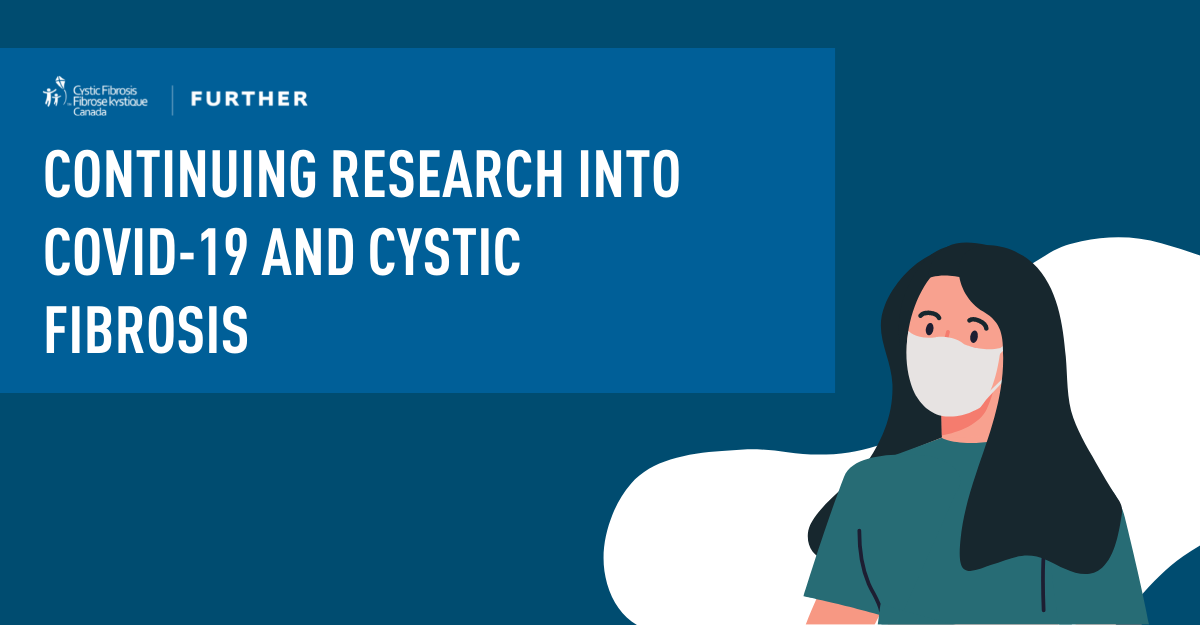Cystic Fibrosis Canada continues research into COVID-19 and cystic fibrosis with new grant from the Canadian Institutes of Health Research (CIHR)

NOVEMBER 4, 2021
To continue the important global research into COVID-19 and cystic fibrosis (CF) that began in March of 2020, Dr. Anne Stephenson, Medical Director of Cystic Fibrosis Canada’s Canadian CF Registry and CF physician at St. Michael’s Hospital and Stephanie Cheng, Director of the Canadian CF Registry at Cystic Fibrosis Canada, alongside co-investigators from the CF Registry Global Collaboration, applied for and were recently awarded funding through the Canadian Institutes of Health Research (CIHR).
The study titled “Global impact of COVID-19 in cystic fibrosis: An international collaboration,” was ranked second overall out of the 103 applications that CIHR received for this funding opportunity. This is a huge win for the global CF community as the study will provide important data for future decision making and enable the international CF community to work closely together and build from each other’s learnings and findings. The study includes more than 50 collaborators, spanning 48 countries and six continents and will build upon the important work that is already underway – which has produced four publications.
As cystic fibrosis is one of the few rare diseases with well-established, national patient databases, the study will leverage the Canadian CF Registry as well as the others around the globe. Looking at individuals in the participating countries, with a confirmed COVID-19 infection from the start of the pandemic through to December 31, 2021, the study will aim to answer three questions:
- What are the risk factors that predict poor outcomes following infection?
- What are the medium- and long-term impacts of infection on lung function and nutritional status?
- What are the factors that influence CF health outcomes after COVID-19 in those who have received a transplant?
The study will follow these individuals until March 30, 2022, to ensure at least three months of follow-up information to assess post-COVID-19 health. In addition, the study will take risk factors into consideration including age, sex, race/ethnicity, CF-related complications, baseline lung health, nutrition, geography (country) and socioeconomic status. Data on vaccine status will also be collected which will allow researchers to estimate the risk of breath-through infections in the CF population.
Q&A with Medical Director of the Canadian Cystic Fibrosis Registry and CF physician Dr. Anne Stephenson
1. What do you hope to learn from this study?
Our work will provide vital knowledge about who is at the highest risk for poor health outcome or disease course following COVID-19 infection, so that people with CF and their care teams can make informed choices about exposure risk. We hope to learn more about the post-COVID-19 condition, whether there are mid- to long-term effects on important parameters to the CF community such as lung function and nutritional status.
2. Why is it important to collaborate with global peers on this research?
COVID-19 is a global pandemic and there is much to learn from our colleagues around the world, from a clinical and epidemiological perspective. From disease management in the early days to vaccine rollout and prioritization more recently, information sharing has been at the forefront of our collaboration. Observing COVID-19 infections in the CF community around the world will enable us to perform analyses on a larger population than any one country or region would allow, leading to results that are hopefully generalizable to the global CF community.
3. When will the findings be published?
The project is well underway, and we have a draft of a manuscript focused on individuals who were infected up to December 31, 2020 which includes over 1500 people. We anticipate this paper will be published before the end of this calendar year. Subsequent papers from this program of research will be submitted for publication in 2022.
